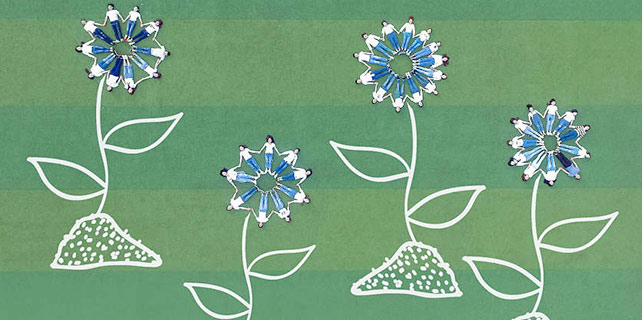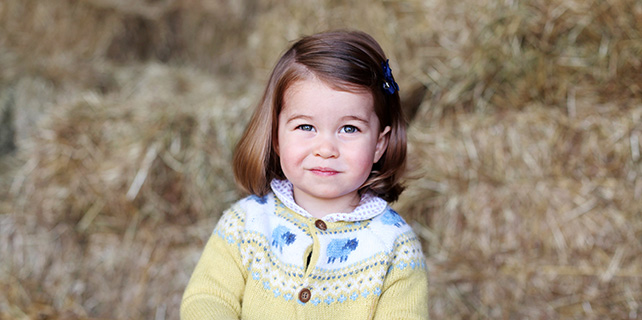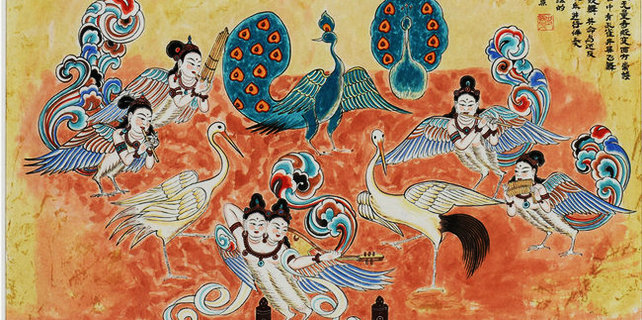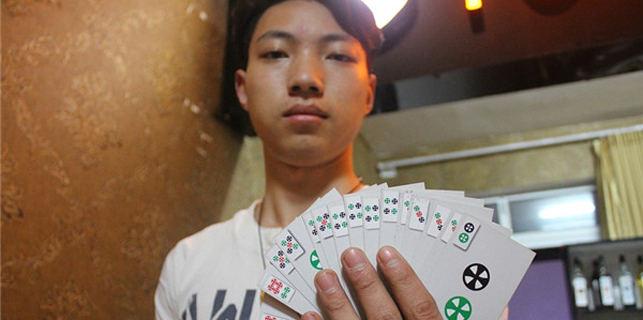Shanghai close to heart of WWII Jewish refugees
Betty Grebenschikoff doesn't hesitate to say what Shanghai means to her.
"If I hadn't gotten to Shanghai, I would not be here today," the 88-year-old told China Daily.
Grebenschikoff is one of five Holocaust survivors featured in the documentary Survival in Shanghai.
The 90-minute documentary produced by Shanghai Media Group, which tells how the city helped shelter Jewish refugees during World War II, received the Gold Remi Award on Saturday at the 50th annual WorldFest-Houston, an independent international film festival.
Last week the film was screened at the Temple Emanu-El Streicker Center in Manhattan, with a support from Asia Society. More than 1,000 people attended.
The documentary tells the story of the more than 20,000 European Jews who fled to the city from Nazi Germany.
In creating the film, the Shanghai Media Group spent eight months interviewing 30 survivors of the Shanghai Ghetto, a segregated area created after the Japanese took over Shanghai around the time they bombed Pearl Harbor in Hawaii.
Grebenschikoff is also the author of Once My Name Was Sara, a memoir that details the flight of her family from Germany to Shanghai days before her father's anticipated arrest by the Gestapo.
She said she does a lot of speaking, particularly to children.
"I always tell them I'm not only an author, I'm also a movie star," she laughed.
Grebenschikoff was born in Germany in 1929. When she was 9 years old, she had to escape with her parents and sister because the government was coming after Jewish people.
"They wanted to take us to the concentration camp," she recalled.
"So we had to run away, and we found refuge in Shanghai, China, which was the only open port at that time that admitted Jewish people without any passports or visas."
Grebenschikoff's family made a life there with the help of local residents. What made the support more precious was that life was difficult for Chinese people as well, as they were suffering under Japan's occupation.
Of the many things Grebenschikoff remembers of that time, the friendliness of the Chinese people stood out.
"They accepted us; they never called us 'dirty Jews' like what they did in Germany," she said.
Grebenschikoff went to a Jewish school in Shanghai.
"I grew up there, for the most part I was happy there, even if it was a very hard life," she recalled.
After the war, Grebenschikoff's family found out that 6 million Jewish people were killed in the Holocaust, including members of her extended family.
"I never saw them again," she said.
In 1950, she left Shanghai with her husband, going to Australia for three years. In 1953, she arrived in the United States.
"Every time I go back, I feel like I'm coming home, because I grew up there, I spent my youth there and also there is
a Shanghai Jewish Refugee Museum," she said.
Grebenschikoff's time in China left a lasting impression on her, even when it comes to the simpler things.
"I love Chinese food. I love soy source. I use chopsticks a lot when I'm home, even for non-Chinese food, and anything Chinese always makes me happy," she said.
Grebenschikoff donated her Shanghai-made wedding dress to the museum.
Ellen Chaim Kracko was a Jewish refugee baby born in Shanghai in 1947. With a birth certificate issued by the Shanghai government, Kracko wonders if she could be considered a Chinese citizen.
Kracko's family realized they couldn't stay in Berlin, so they tried to get visas, but no place was open to them in 1938.
Kracko's father, who was engaged to her mother at the time, tried to get tickets out and failed, but then fate intervened.
Her father was asked by an agent that there were 16 tickets available because of cancellations, and the destination was Shanghai. He decided to go immediately, and in March 1939, 16 members of her family set sail for Shanghai. The trip was supposed to be short, but turned out to be a 10-year stay.
As a stateless refugee, Ellen Kracko was accepted into the United States in 1948. After living in Israel for three years waiting for the paperwork to be done, Kracko finally landed in New York with her aunt.
"There are so many people out here who do not know the story that is really a part of our history. More people should know that," Kracko said..
xiaohong@chinadailyusa.com
















